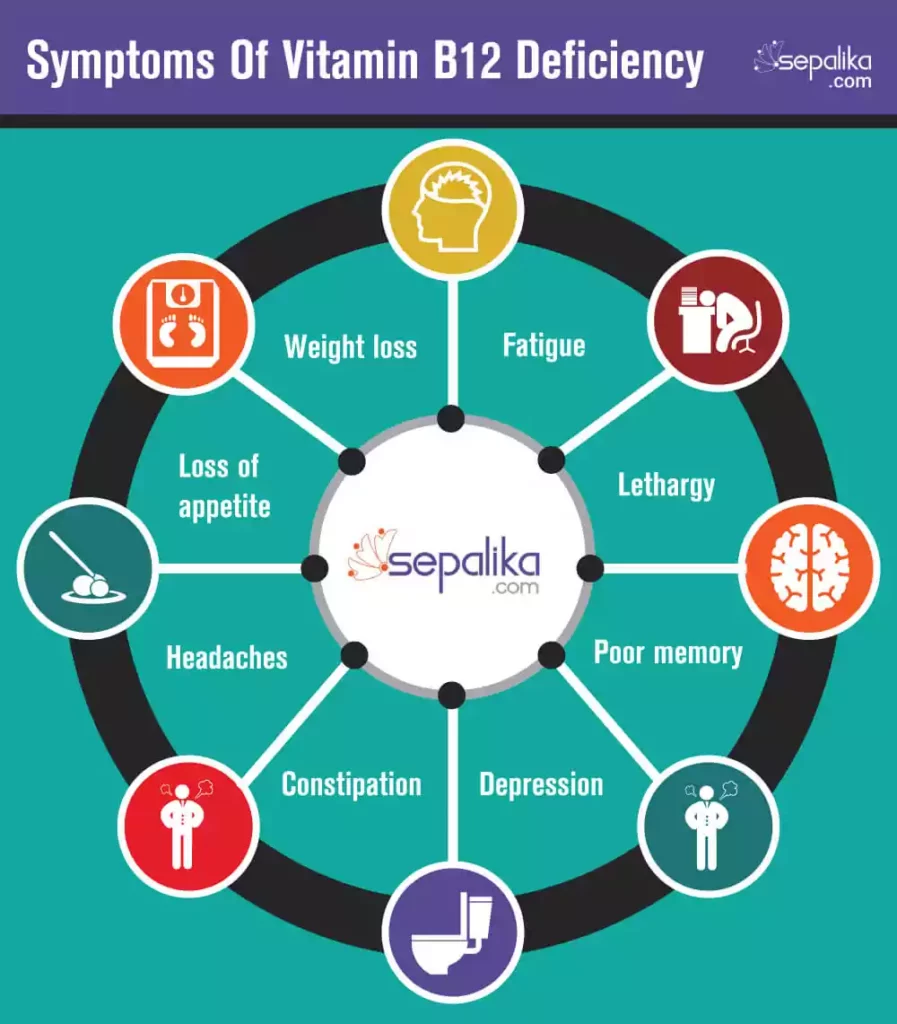
Supplements
Why Vitamin B12 Is Important In Diabetes
May 13, 2016How does the Vitamin B Family Work?
Vitamin B Complex is a combination of eight B vitamins – B1, B2, B3, B5, B6, B7, B9 and B12. The B family of vitamins plays a variety of critical roles in our body, including converting the food we eat into energy. Health researchers and experts have found a deep connection, especially between Vitamin b12 and diabetes.
In addition to this, research has shown that several drugs commonly prescribed by doctors to diabetics begin to cause depletion of the Vitamin B family from the human body. This process is called ‘drug induced nutrient depletion’ and is often the reason behind drug side effects. Folic Acid or Vitamin B9 and Vitamin B12 are easily depleted by daily use of anti-diabetic medication, making it all the more important for diabetics to put back these vitamins.
Symptoms of Vitamin B12 Deficiency
Vitamin B12 deficiency can cause potentially severe and sometimes irreversible damage to the nervous system. A severe health complication of vitamin B12 deficiency is pernicious anemia, the inability of the body to produce healthy red cells. Without sufficient red cells, the body does not get enough oxygen to function properly.
If the levels go only slightly below normal, symptoms like:
- fatigue
- lethargy
- poor memory
- depression
- headaches
- loss of appetite
- weight loss
- constipation
- pale skin and
- breathlessness
Initially, you may disregard these symptoms as part of your underlying diabetic condition. But over time, the deficiency may become more severe and may cause irreparable damage to your body.
What Does Research Say about Vitamin B12?
Diabetics generally carry the risk of a vitamin B12 deficiency. A study found that as many as 22% of diabetics are deficient in vitamin B12.
Another study that tracked 785 women after delivery found that low vitamin B12 levels during pregnancy contributed to their risk of gestational diabetes and later full blown diabetes.
Diabetic patients usually suffer from a type of neuropathy that causes numbness, weakness and pain in the hands and feet. Research has concluded that vitamin B12 (and in many cases a vitamin B complex) supplementation has beneficial effects in people with diabetic neuropathy.
Relationship Between Vitamin B12 and Diabetes
Vitamin B12
Vitamin B12 s critical to ensure that your blood reaches even the smallest capillaries. A deficiency of Vitamin B12 can lead to tingling or numbness in your hands and legs, memory loss, mood swings, etc. Diabetic retinopathy or damage caused to eyes by diabetes is the other big diabetic complication that can be addressed by Vitamin B12.
Vitamin B9 or Folate (along with B12)
Helps to reduce the arterial irritant homocysteine that can cause nerve damage in diabetics. It also helps prevent diabetes-induced blindness and leg pains from hardening of veins.
Vitamin B7 or Biotin
Has been seen to help with better blood sugar levels control in research studies, especially when combined with the mineral Chromium.
Vitamin B6 or Pyridoxine
Helps maintain mood, prevent nerve damage and preserves eye health. It has also been shown to achieve substantial reductions in HbA1c compared to placebo groups.
Vitamin B5 or Pantothenic Acid
Vitamin B5 is thought to help with burning or tingling sensations in the hands and feet that diabetic patient often face (a complication of diabetes called diabetic neuropathy)
Vitamin B3 or Niacin (for type 2 diabetics, the form Niacinamide)
Vitamin B3 has been found to help people whose medications have ceased to work effectively for glucose control; it seems to work through helping the body improve insulin sensitivity.
Vitamin B2 or Riboflavin
Vitamin B2 has not been studied directly to impact Type 2 diabetes or its complications. However, since it works to support production of Glutathione, a powerful antioxidant, addition of this element to a B Complex may support diabetics. Diabetics have excessive oxidative stress compared to non-diabetics.
Vitamin B1 or Thiamine
When taken in its fat soluble form benfotiamine, helps prevent circulatory issues in diabetics; protects nerves, eyes and limbs.
Things to bear in mind A combination of Vitamins B6, B9 and B12, when given to patients with diabetic nephropathy (kidney disease), was found to worsen the condition in one study. Researchers felt that the possible reason for this could be the excessive excretion of magnesium due to this combination of vitamins B. It would be advisable for anyone considering a Vitamin B Complex to also include a Magnesium supplement. If you have kidney disease as well as diabetes, it would be best to involve your medical practitioner.
Vitamin B Dosage for Diabetics
A good quality Vitamin B complex, will usually have the following and may be suggested at two capsules a day: B12 (200-1000 mcg), B9 (400 mcg), B6 (10-25mg), Riboflavin (25-75 mg) Biotin (500-1000mcg) and B1 (60-160 mg).
Some experts believe that adults with type 2 diabetes and over the age of 50 should take 2.4 mg of vitamin B12 daily, either through a synthetic supplement or through fortified foods.
Foods That Contain B Vitamins
The vitamin B family is present in so many foods that this cannot be an exhaustive list by any means. However, we’ve picked some of the foods that have a high balance of all the Vitamins B.
Beef, beef liver, oats, tuna, turkey breast, eggs, bananas (green only, for diabetics), avocado, kidney beans, summer squash, spinach, kale, almonds, milk (type A2 from cow’s or goat’s milk, sheep milk or camel’s milk). Several of the recipes listed in our diabetes-friendly diet can give you interesting and tasty ways to incorporate these foods into your daily diet.
Is Vitamin B12 Safe?
Vitamin B12 is perfectly safe when taken at recommended dosages. However, people with heart concerns should use it with caution and under medical guidance. This is because vitamin B12 supplementation may increase rates of restenosis (reoccurrence of blood vessel narrowing) after placement of stent.
It should be used with caution in people with a history of high blood pressure as intravenous administration of vitamin B12 may cause an increase in blood pressure. It should also be used cautiously in people who have skin disorders as vitamin B12 supplementation may aggravate their skin problems.
Side Effects of Vitamin B12
While normal levels of vitamin B12 supplementation have no side effects whatsoever, higher dosages might have minor side effects like flushing, diarrhea, nausea and vomiting.
Vitamin B12, however, may cause side effects in individuals with certain health problems. For example, people sensitive to vitamin B12, cobalt or any other ingredient in the supplement product may show allergic response to the supplement. People with low levels of potassium should take vitamin B12 supplementation with caution because as soon as the deficiency of B12 is corrected, potassium can go down to potentially fatal levels.
People with a history of gout should also be careful while taking vitamin B12 supplementation as correction of the deficiency may trigger a gout attack.
Final Verdict
The research that supports the use of Vitamin B for diabetes has all been done on these vitamins singly or at the most, in a combination of two or three of these. So patients were given one or two or at the most three of the B Vitamins during the research studies. This is done so that there is no doubt about which vitamin actually led to the change in the lab values being measured.
However, we believe that a good quality Vitamin B complex may be the more practical thing to do in our daily lives. That is why we have picked a Vitamin B Complex over individual vitamin B pills.
Vitamin B12 as well as all the other vitamins from the B family are vital for proper functioning of our body. When we look at chronic diseases like type 2 diabetes from a Functional Medicine perspective, we look at the imbalance that has been created within the body as a result of unhealthy lifestyle choices and ears of abuse. The crux of chronic disease reversal rests on correcting this imbalance. It is vital for diabetics to get enough of the right nutrients, exercise and other lifestyle habits as a first step to reverse their chronic condition.
References:
1. Vitamin Supplement Use and Diabetes Mellitus Incidence among Adults in the United States – https://academic.oup.com/aje/article/153/9/892/124636/Vitamin-Supplement-Use-and-Diabetes-Mellitus
2. Vitamin nicotinamide riboside protects mice from diabetes complications – https://www.sciencedaily.com/releases/2016/05/160527090650.htm
3. Effect of B-Vitamin Therapy on Progression of Diabetic Nephropathy – http://jamanetwork.com/journals/jama/fullarticle/185758
4. Serum vitamin C concentrations and diabetes: findings from the third National Health and Nutrition Examination Survey, 1988–1994 – http://ajcn.nutrition.org/content/70/1/49.short
5. Vitamin C improves endothelium-dependent vasodilation in patients with non-insulin-dependent diabetes mellitus – https://www.ncbi.nlm.nih.gov/pmc/articles/PMC507058/
6. The Role of Vitamin D and Calcium in Type 2 Diabetes. A Systematic Review and Meta-Analysis – http://press.endocrine.org/doi/abs/10.1210/jc.2007-0298
7. Role of vitamin D in the pathogenesis of type 2 diabetes mellitus – http://onlinelibrary.wiley.com/doi/10.1111/j.1463-1326.2007.00710.x/full
8. Vitamin E Reduction of Protein Glycosylation in Diabetes: New Prospect for Prevention of Diabetic Complications? – http://care.diabetesjournals.org/content/14/1/68.short






